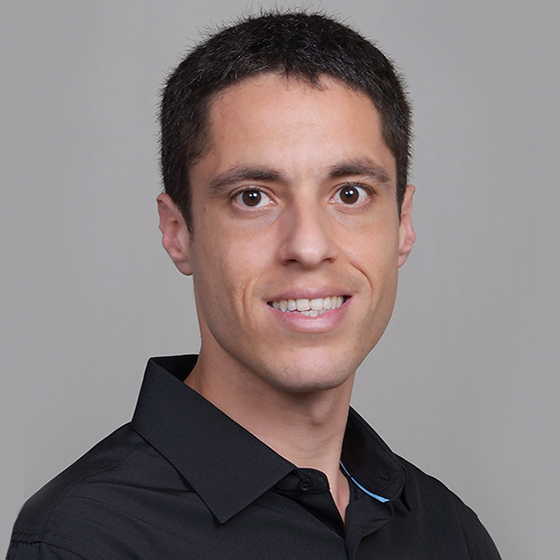
Biography
Or Katz received his PhD from the Weizmann Institute of Science, developing novel quantum memories that operate at, or above room temperature and can maintain their quantum state for hours. In his first postdoctoral tenure at the Weizmann Institute, he pioneered studies of quantum chemistry with a sub-nanoscale resolution: probing the interaction of a single ultracold neutral atom and one trapped ion. Concurrently to his academic pursuits, he has worked in the industry for a decade, collaborating closely with engineers to develop precision quantum sensors. As a postdoctoral researcher at the Duke Quantum Center, Or Katz discovered groundbreaking methods for entangling multiple trapped-ion qubits and explored new phases of matter using large ion crystals. Or Katz has joined the School of Applied and Engineering Physics as a visiting assistant professor, and will assume the role of assistant professor starting July 2024.
Research Interests
The Katz Lab explores new avenues to develop and harness the potential of quantum hardware based on ions, atoms, photons, and phonons. Our focus is to use these as quantum processors to address complex problems from various scientific disciplines.
Quantum computers and simulators have great potential to deepen our understanding of complex systems and to solve computationally intractable problems. Trapped atomic ions are a leading platform for quantum simulation and computation. Each atom can store one or more quantum bits of information and maintain its state for exceptionally long periods of time (hours). The controlled assembly of atoms into large crystals, built atom by atom, comprises a computational space that grows exponentially with the crystal’s dimension.
As the power of quantum processors relies on the manipulation of quantum states in a large computational (Hilbert) space, it often requires a great deal of control. With laser fields targeting individual atoms, we can efficiently program the quantum entanglement between the atoms, and by that engineer the properties of this synthetic quantum material. The novel techniques discovered and developed in the group provide a new means to realize efficient quantum computation with large ion crystals, which is just ripe for tackling computationally challenging problems.
The group also has an interest in developing precision sensors based on quantum hardware for various applications; from probing and controlling chemical reactions between individual atoms to building detectors based on large ensembles of atomic gases that search for cosmological dark matter.
Selected Publications
- O. Katz, L. Feng, A. Risinger, C. Monroe, M. Cetina "Demonstration of three- and four-body interactions between trapped-ion spins", Nature Physics (2023).
- O. Katz, M. Pinkas, N. Akerman, R. Ozeri, "Quantum logic detection of collisions between single atom-ion pairs", Nature Physics 18, 533-537 (2022).
- L. Feng, O. Katz, C. Haack, M. Maghrebi, A. V. Gorshkov, Z. Gong, M. Cetina, C. Monroe, "Continuous Symmetry Breaking in a Trapped-Ion Spin Chain", Nature (2023).
- R. Shaham, O. Katz, O. Firstenberg, "Strong coupling of alkali-metal spins to noble-gas spins with an hour-long coherence time", Nature Physics 18, 506-510 (2022).
- O. Katz, C. Monroe, "Programmable quantum simulations of bosonic systems with trapped ions", Phys. Rev. Lett. 129, 063603 (2023).
- I. M. Bloch*, G. Ronen*, R. Shaham, O. Katz, T. Volansky, O. Katz, "New constraints on axion-like dark matter using a Floquet quantum detector", Science Advances 8, 5 (2022).
Selected Awards and Honors
- Amos de Shalit Prize – 2021
- The Israel Dostrovsky Memorial Prize of Excellence – 2020
- Vatat Fellowship in Quantum Research Technology – 2020
- Rotschild Fellowship – 2020

